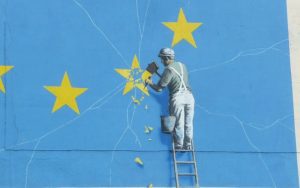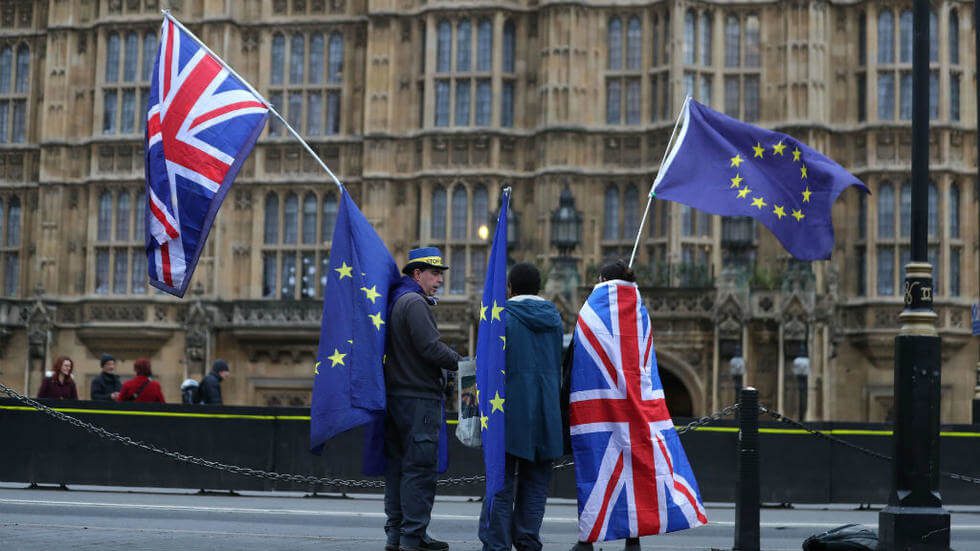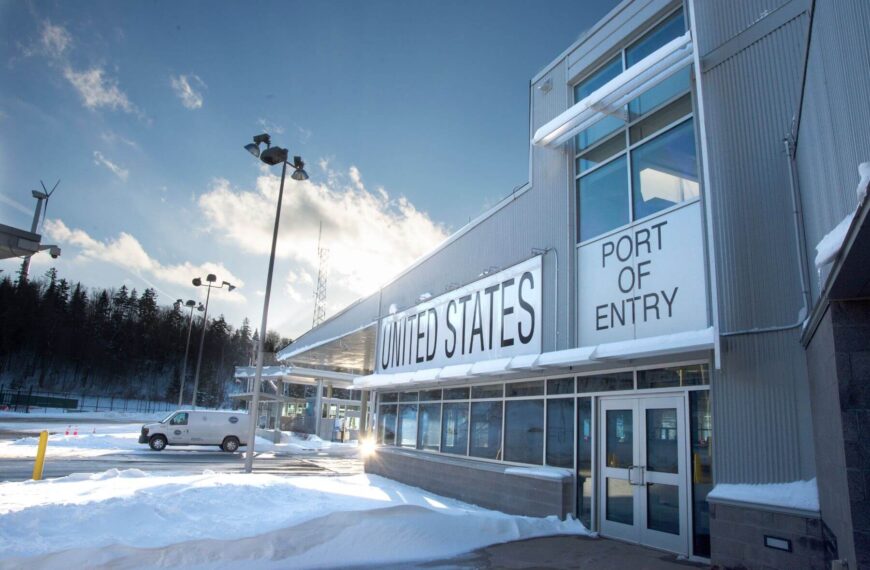The UK parliament voted against or failed to ratify the negotiated withdrawal agreements, that deadline has been extended three times, and is currently January 31, 2020. Our Associate Editor, Navodita, analyses the Brexit impasse, exclusively for Different Truths.
Brexit stands for Britain’s exit from the European Union. Following a 2016 referendum, where 51.9% voted to leave, the UK government formally announced the country’s withdrawal in March 2017. As the UK parliament voted against or failed to ratify the negotiated withdrawal agreements, that deadline has been extended three times, and is currently January 31, 2020.
Historical Background
Withdrawal is advocated by Eurosceptics and opposed by pro-Europeanists, both of whom span the political spectrum. The UK joined the European Communities (EC), in 1973, with continued membership endorsed in a 1975 referendum. In the 1970s and 1980s, withdrawal from the EC was advocated mainly by the political left, e.g. in the Labour Party‘s 1983 election manifesto. From the 1990s, the eurosceptic wing of the Conservative Party grew, and led a rebellion over ratification of the 1992 Maastricht Treaty that established the EU. In parallel with the UK Independence Party (UKIP), and the cross-party People’s Pledge campaign, it pressured Conservative Prime Minister David Cameron to hold a referendum on continued EU membership. Cameron, who had campaigned to remain, resigned after the result and was succeeded by Theresa May.
Withdrawal is advocated by Eurosceptics and opposed by pro-Europeanists, both of whom span the political spectrum. The UK joined the European Communities (EC), in 1973, with continued membership endorsed in a 1975 referendum. In the 1970s and 1980s, withdrawal from the EC was advocated mainly by the political left, e.g. in the Labour Party‘s 1983 election manifesto.
On 29 March 2017, the UK government formally began the process of withdrawal by invoking Article 50 of the Treaty on European Union, with permission from Parliament. May called a snap general election in June 2017, which resulted in a Conservative minority government supported by the Democratic Unionist Party.
UK–EU withdrawal negotiations began later that month. The UK negotiated to leave the EU customs union and single market. This resulted in the November 2018 withdrawal agreement, but the UK parliament voted against ratifying it three times. The Labour Party wanted any agreement to maintain a customs union, while many Conservatives opposed the agreement’s financial settlement on the UK’s share of EU financial obligations, as well as the “Irish backstop” designed to prevent border controls between Northern Ireland and the Republic of Ireland. The Liberal Democrats, Scottish National Party and others seek to reverse Brexit through a second referendum. Should a withdrawal agreement be passed, there will be a transition period until at least 31 December 2020, where the future relationship is to be negotiated.

Brexit Impact and Challenges
The broad consensus among economists is that Brexit will likely reduce the UK’s economy and its real per capita income in the medium term and long term, and that the referendum itself damaged the economy. Brexit is likely to reduce immigration from European Economic Area (EEA) countries to the UK, and poses challenges for UK higher education, academic research and security. Following Brexit, EU law and the EU Court of Justice will no longer have supremacy over UK laws or its Supreme Court, except to the extent agreed upon in a withdrawal agreement. The European Union (Withdrawal) Act 2018 retains relevant EU law as domestic law, which the UK could then amend or repeal.
The broad consensus among economists is that Brexit will likely reduce the UK’s economy and its real per capita income in the medium term and long term, and that the referendum itself damaged the economy.
Recently Prime Minister Boris Johnson had returned from Brussels triumphant with a new withdrawal deal. All he needed was Parliament to give its okay — the same Parliament that had rejected his predecessor Theresa May’s deal three times. He’d managed to reel back in most of the lawmakers from his Conservative Party who’d left (or, rather, been kicked out) over his Brexit policy. They were adamantly opposed to a no-deal exit from the European Union, but some could be reconciled to his solution, which took the U.K. out of the bloc’s customs union and by a sleight of hand — which created new trade frictions between Northern Ireland and the British mainland — kept the Irish border open. He also had some Labour MPs on side. That proved enough for his deal to pass a second reading in Parliament, essentially winning “agreement in principle.” But there was a catch: Johnson wanted to give Parliament only three days to examine the deal’s details, barely enough time to peek inside the bag let alone subject its contents to proper scrutiny. Parliament balked and hence we have an election as Johnson tries to secure a majority to force his deal through.
In their head-to-head debate this week, the opposition Labour leader Jeremy Corbyn noted that the likelihood of Johnson getting a quick trade deal with the EU that’s advantageous for Britain was nil. But Corbyn didn’t question Johnson in any detail on his divorce deal nor spend time noting that the man who has criticised Corbyn’s tax and spend policies as economic folly is pushing through a deal that brings higher costs and more trade restrictions than the failed one that cost May her job.
Corbyn is now focusing on Labour’s plans for a wholesale re-imagining of the British economy along socialist lines
Corbyn is now focusing on Labour’s plans for a wholesale re-imagining of the British economy along socialist lines, with a much greater share of state ownership, higher taxation and redistribution.
Snap Election and Brexit Impasse
The bigger question is: is the world’s oldest democracy in for some major upheaval? The snap election is unlikely to bring any stability on the Brexit issue. U.K. voters are clearly and profoundly divided over the EU membership and are likely to remain so; the division is now mirrored in the country’s political system. Will the election really put an end to the Brexit uncertainty- most political pundits say, maybe not. While the Liberal Democrats are openly campaigning to stop Brexit altogether, the Brexit Party, whose leader, Nigel Farage, supports a no-deal breakup from the EU and the Scottish National Party is a pro-EU party based in Scotland. While the Brexit Party supports what it calls a ‘clean breakup’ from the EU and the Conservative Party is arguing that the country should leave the EU but with the deal that Johnson negotiated.
Brexit would definitely take a lot longer to happen than it seems.
Brexit would definitely take a lot longer to happen than it seems. In the event of a possible hung parliament, a second referendum on the country’s EU membership is the most likely option.
Photos from the Internet






 By
By

 By
By
 By
By
Thank you very much indeed for neutral analysis. UK media and newspapers are so openly against Jeremy Corbyn. Such a shame! Will be expecting your analysis on Lib dems and SNP. In politics everything can happen anytime.
Thank you.
Best regards,
T.T.S.Hussein